Are you in search of the best probiotics for histamine intolerance? If you're like I once was, overwhelmed by the many choices of probiotic strains and their impact on the gut microbiome, this article is for you. Histamine intolerance can bring about debilitating symptoms, leaving you wondering what you can or cannot include in your low histamine diet.
But here's the kicker: Some probiotics can produce histamine in your digestive tract. If you're grappling with histamine sensitivity, histamine intolerance, or conditions like Mast Cell Activation Syndrome (MCAS), certain foods and probiotic strains might be on your avoid-list.
In this guide, we'll dive deep into the world of probiotic supplements and explore the significance of different strains on your gut health and histamine levels. Discover how selecting the right probiotics can make a remarkable difference in your digestive system. Say goodbye to discomfort and hello to a healthier gut!
When I healed my gut, I was able to relieve a significant amount of histamine intolerance symptoms like excessive itchiness, migraines, and bloating. I am here to share what I learned along the way!
Please remember, that the information presented here is for educational purposes only and should never replace professional medical advice. Always consult with a qualified healthcare practitioner before making changes to your health and wellness regimen, especially if you have a medical condition.
Jump to:
Understanding Histamine Intolerance
Histamine intolerance, a condition many face, can manifest in various ways. It's crucial to grasp what it entails and how it ties into gut health.
Histamine Intolerance Explained: Histamine is a natural compound present in our bodies, playing an important role in immune response and regulating stomach acid. However, some individuals experience histamine intolerance due to an imbalance in histamine levels. This can occur when there's an insufficient amount of diamine oxidase (DAO), an enzyme responsible for breaking down histamine, in the small intestine. Alternatively, conditions like small intestinal bacterial overgrowth (SIBO) can stimulate the production of excess histamine.
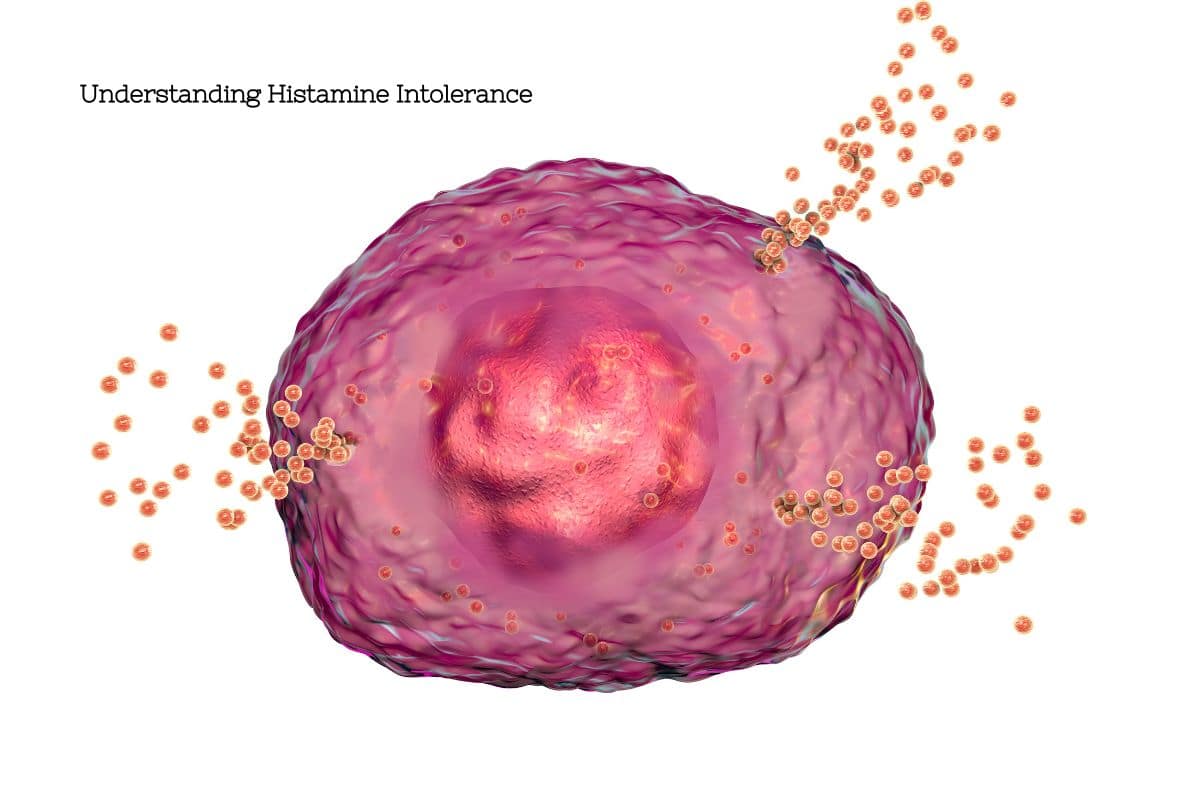
Common Symptoms: Histamine intolerance symptoms can vary from person to person but often include digestive issues like diarrhea, abdominal pain, and bloating. Skin rashes, headaches, and seasonal allergies resembling hay fever are also common. Inflammatory responses, such as those seen in ulcerative colitis, can worsen due to elevated histamine levels. Additionally, some episodic migraine patients may find histamine to be one of many triggers for their challenging condition.
The Importance of a Low Histamine Diet: Managing histamine intolerance often begins with dietary changes. A low histamine diet involves avoiding histamine-rich foods and those that trigger histamine release. This can alleviate symptoms and reduce the overall histamine load on the body.
The Gut-Histamine Connection: The gut plays a pivotal role in histamine metabolism. A healthy small intestine with a balanced microbiome helps maintain proper histamine degradation. Conditions like leaky gut can exacerbate histamine issues by allowing histamine to pass through the intestinal barrier and into the bloodstream, triggering allergic reactions and other symptoms.
Understanding histamine intolerance is essential for effectively managing its symptoms. By adopting a low histamine diet and addressing underlying causes, individuals can find relief from the challenges posed by histamine intolerance and its impact on gut inflammation and overall health.
Identifying Low Histamine Probiotic Strains
When managing histamine intolerance, selecting the right probiotic strains can make a significant difference in your gut health. Here, we'll introduce specific probiotic strains known for their low histamine production and explain how they can support your well-being.
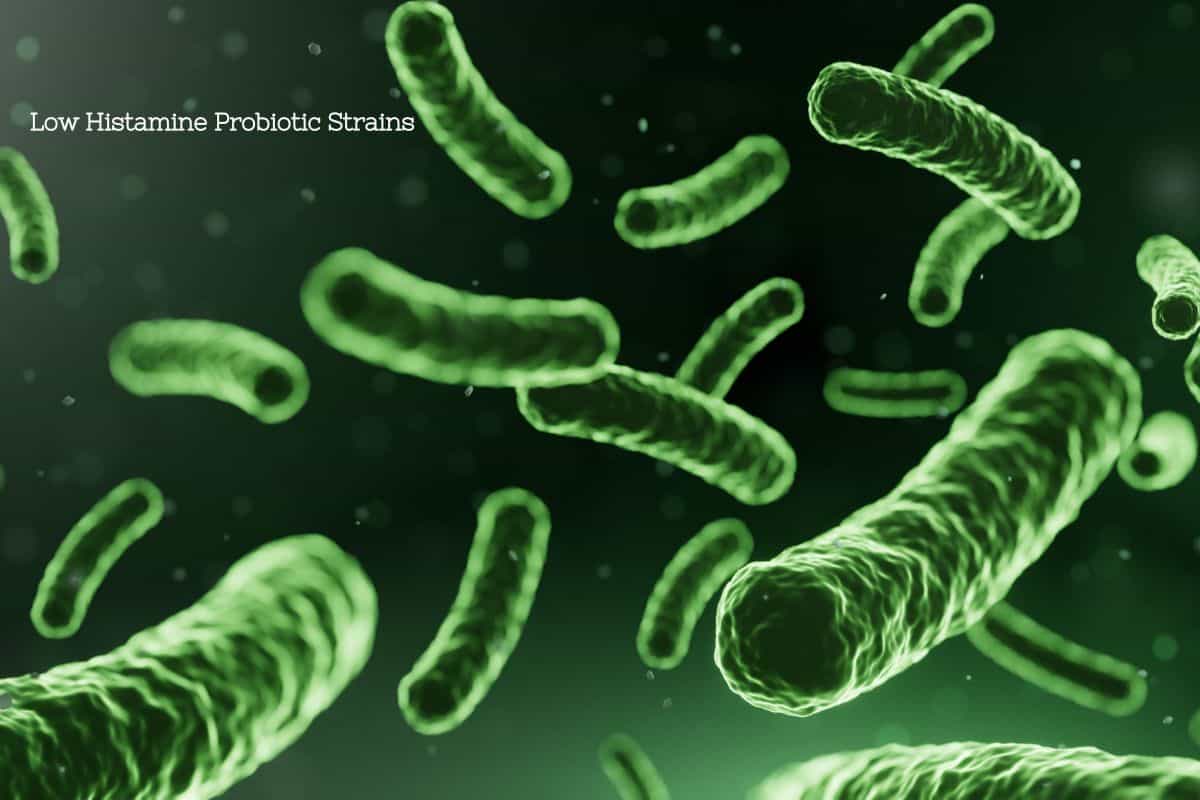
1. Lactobacillus Plantarum: This probiotic strain is a star player in the low histamine probiotic category. Lactobacillus plantarum can aid in histamine breakdown, which is crucial for individuals with histamine intolerance. It supports a balanced gut microbiome while helping to manage histamine levels.
2. Bifidobacterium Longum: Bifidobacterium longum is another beneficial probiotic for those with histamine issues. It promotes a healthy digestive system and has a positive impact on overall gut health. This strain is known to have a low histamine-producing potential.
3. Lactobacillus Rhamnosus: Lactobacillus rhamnosus is renowned for its health benefits. It can help stabilize the gut microbiome without significantly increasing histamine production. This makes it a suitable choice for individuals on a low-histamine diet.
4. Bifidobacterium Bifidum: Bifidobacterium bifidum is known for its ability to support the balance of white blood cells and mast cells in the gut. It may also be helpful with irritable bowel syndrome (IBS). This balance is crucial for preventing allergic symptoms and histamine-related issues.
5. Saccharomyces Boulardii: While technically a yeast-based probiotic, Saccharomyces boulardii is often used to complement other probiotics. It doesn't produce histamine and can be a useful addition to your probiotic regimen.
6. Bacillus Coagulans: Bacillus coagulans is a spore-forming probiotic that survives the harsh conditions of the digestive tract. It supports a balanced gut microbiome and is less likely to trigger histamine production.
These specific strains are considered the best choice for individuals dealing with histamine intolerance. Probiotic supplements containing these strains can be found in various forms, such as capsules or powders. When choosing a supplement, ensure it specifies the strains present and opt for products designed for a low-histamine diet.
By incorporating these low histamine probiotics into your daily routine, you can support your gut health without exacerbating histamine intolerance, making strides toward a more comfortable and symptom-free life.
Probiotic Strains to Avoid
While specific probiotic strains can be incredibly beneficial for gut health, some may pose risks for individuals with histamine intolerance due to their potential to increase histamine levels in the digestive tract. Here, we'll identify these strains and discuss the potential risks associated with their consumption for those with histamine issues.
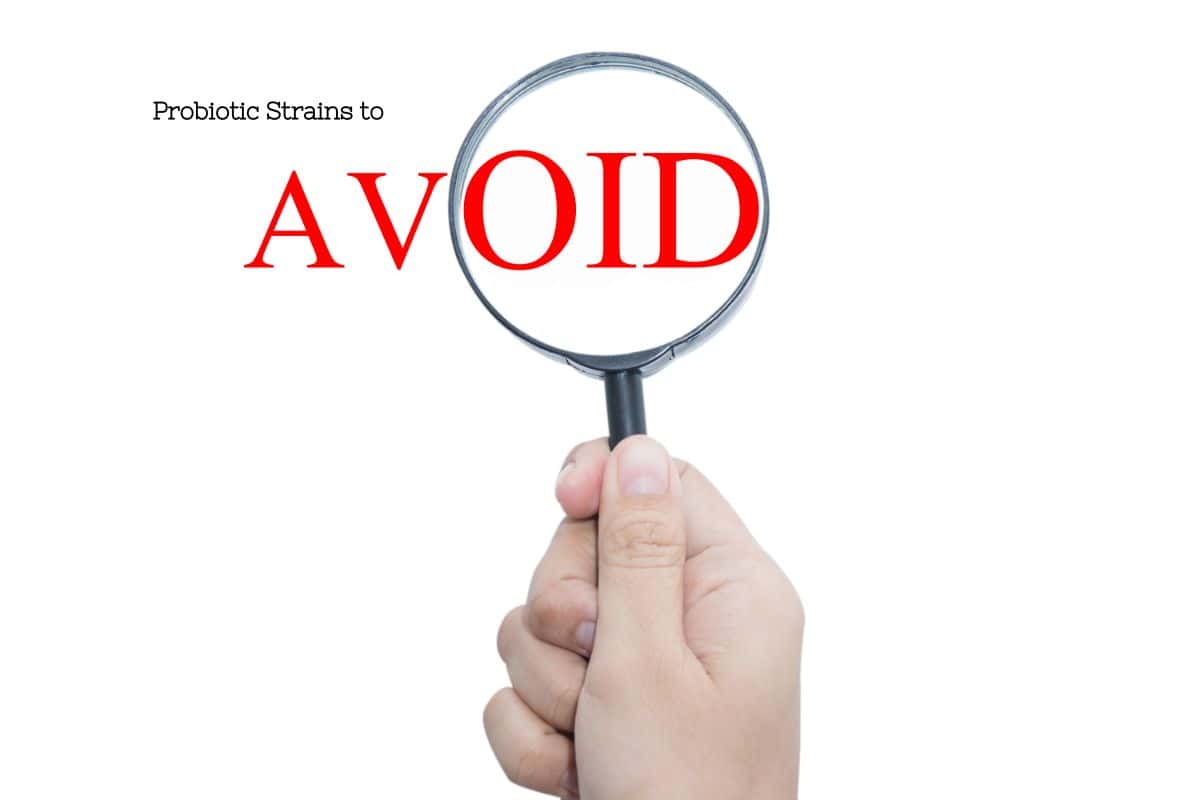
1. Lactobacillus Casei: This probiotic strain has been shown to increase the production of biogenic amines, including histamine, during the fermentation process. For individuals with histamine intolerance, this could lead to the release of histamine in the gut, potentially triggering symptoms like digestive discomfort and skin reactions. However, more studies are needed to confirm this. To stay on the safe side, it may be best to avoid it while rebalancing your gut and histamine reactions.
2. Lactobacillus Bulgaricus: Like Lactobacillus casei, Lactobacillus bulgaricus can also contribute to the release of histamine. This strain may not be the best choice for those with histamine intolerance or sensitivities.
3. Bifidobacterium Infantis: While generally considered a beneficial probiotic, Bifidobacterium infantis may affect histamine levels differently in different individuals. Some may experience an increase in histamine production, leading to digestive symptoms.
4. Streptococcus Thermophilus: Streptococcus thermophilus is commonly used in yogurt production but may not be a good idea for individuals with histamine intolerance. It can play a role in histamine production during the fermentation process.
5. Lactobacillus Helveticus: This strain can impact histamine receptors and amino acid metabolism in the gut. Its effects may vary among individuals, making it challenging to predict its impact on histamine levels.
6. Lactobacillus Delbrueckii: Lactobacillus delbrueckii is another strain used in dairy fermentation, and it may not be suitable for those with histamine issues, as it can contribute to histamine production.
7. Lactobacillus Saerimneri: Research has indicated that Lactobacillus saerimneri has the potential to produce histamine, which may be a consideration for individuals with histamine intolerance when choosing probiotic strains. However, it's important to note that the extent of histamine production can vary among different strains and individuals.
Potential Risks: Consuming probiotic strains that increase histamine levels can exacerbate symptoms of histamine intolerance. These symptoms may include digestive discomfort, skin rashes, and more severe reactions in some cases. It's essential for individuals with histamine intolerance to carefully consider the strains present in any probiotic blend they choose and consult with a healthcare professional if they have concerns about potential risks.
For those aiming to maintain a healthy microbiome while managing histamine intolerance, prioritizing low-histamine probiotics containing strains like Lactobacillus plantarum and Bifidobacterium longum (two of my favorite strains to use) is often a safer and more effective choice.
The Impact of Probiotics
Probiotics play a pivotal role in maintaining a healthy gut microbiome, which is essential for overall well-being. For individuals dealing with histamine intolerance, understanding the benefits and potential risks associated with probiotics is crucial.
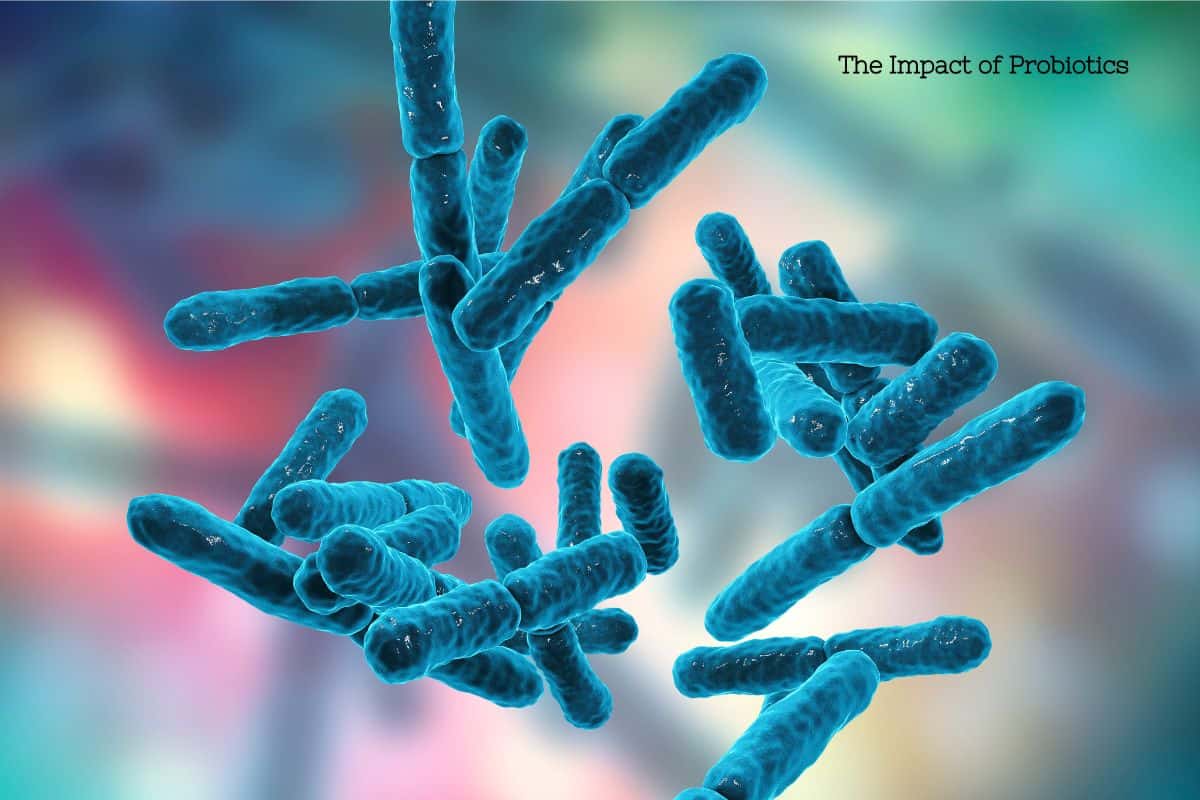
Maintaining a Healthy Gut Microbiome: Probiotics are beneficial bacteria that, when consumed, can populate the gastrointestinal tract. They help establish a balanced gut microbiota, fostering an environment where good bacteria thrive. This balance is essential for digestive health, immune system support, and maintaining gut motility.
Benefits for Those with Histamine Intolerance: Probiotics offer several potential benefits for individuals with histamine intolerance. Certain strains, such as Lactobacillus plantarum, have been studied for their role in histamine metabolism and the breakdown of histamine in the gut. They can help mitigate histamine symptoms and improve overall gut health.
Histamine Release and Probiotics: However, it's vital to note that not all probiotics are created equal. Some strains have been associated with triggering histamine release in the gut, potentially exacerbating histamine intolerance symptoms. To explore a more comprehensive list of probiotic-rich foods and their benefits for gut health, check out our article on the "Best Probiotic Foods for Gut Health." Understanding the nuances of probiotic use can lead to a healthier gut and improved overall well-being.
Choosing the Right Probiotic Supplements
Selecting the ideal probiotic supplements tailored to your specific needs can significantly impact your journey toward better gut health and managing histamine intolerance. Here's a guide to help you make informed choices:

Read Product Labels: When browsing for probiotic supplements, always start by examining the product labels. Look for information on the strains of probiotic bacteria included in the supplement. For individuals with histamine intolerance, prioritize supplements that mention strains known for their low histamine production.
Specific Strains Matter: Not all probiotic strains have the same effects on the body. Research shows that certain strains, such as Lactobacillus plantarum and Bifidobacterium longum, are generally well-tolerated by those with histamine issues. These strains can promote gut health without increasing histamine levels.
Reputable Brands: Trustworthy brands that specialize in probiotics can be a good place to start your search. They often provide detailed information about the strains and colony-forming units (CFUs) in their products. Look for brands that emphasize quality and transparency in their manufacturing processes.
Low Histamine Options: Some reputable brands offer probiotic supplements explicitly designed for individuals with histamine intolerance or sensitivities. These supplements are formulated to minimize histamine production while supporting digestive health. Brands that offer low histamine probiotic options include Seeking Health, Ora Organic, and Bioma.
Consider Co-Factors: It's also worth considering supplements that include co-factors such as vitamin B 6, B 12, Copper, and Iron which can support the activity of DAO enzymes responsible for histamine breakdown.
Consult a Professional: If you have specific dietary restrictions or challenging conditions related to histamine intolerance, consider consulting a healthcare professional or nutritionist. They can provide personalized recommendations tailored to your unique needs.
Remember, choosing the right probiotic supplements is the first step towards improving your gut health and managing histamine intolerance. By being diligent in your selection and seeking out strains known for their low histamine production, you can embark on a path to better digestive well-being and overall health
Tips for Incorporating Probiotics
Incorporating probiotics into your daily routine can be a simple yet effective way to support your gut health, especially when managing histamine intolerance. Here are some practical tips to make probiotics a seamless part of your daily life:

1. Choose the Right Supplement: As mentioned earlier, opt for probiotic supplements with strains suitable for histamine intolerance. Read product labels carefully to ensure they meet your specific needs.
2. Consistency is Key: Probiotics work best when taken consistently. Set a daily schedule or incorporate them into an existing routine, like breakfast or dinner, to help you remember.
3. Start Slowly: If you're new to probiotics or have a sensitive gut, start with a lower dose and gradually increase it. This allows your body to adjust comfortably.
4. Refrigerate When Necessary: Some probiotics require refrigeration to maintain their potency. Be sure to store them as recommended to preserve their efficacy.
5. Time it Right: While probiotics can be taken with or without food, some people find it helpful to take them just before or after a meal. Experiment to see what works best for you.
6. Diversify Your Diet: Probiotic-rich foods can complement your probiotic regimen. Incorporate yogurt, kefir, kimchi, sauerkraut, and other fermented foods into your meals. These foods provide a natural source of beneficial bacteria.
7. Prebiotic Foods: Include prebiotic-rich foods like garlic, onions, leeks, and asparagus in your diet. Prebiotics serve as nourishment for probiotics, helping them thrive in your gut.
8. Stay Hydrated: Proper hydration is essential for a healthy gut. Drink plenty of water to support the growth and activity of probiotics in your digestive system.
9. Limit Sugar and Processed Foods: High-sugar and processed foods can disrupt the balance of good bacteria in your gut. Minimize your intake to create a favorable environment for probiotics to flourish.
10. Monitor Your Body: Pay attention to how your body responds to probiotics and dietary changes. If you experience any adverse effects or unusual symptoms, consult a healthcare professional for guidance.
By following these tips, you can seamlessly integrate probiotics into your daily routine and enhance their effectiveness. Combined with a balanced diet rich in probiotic and prebiotic foods, you'll be well on your way to optimal gut health, even while managing histamine intolerance.
Final Thoughts
In conclusion, managing histamine intolerance is a journey that involves careful choices and dedicated self-care. Probiotics can be valuable allies in this endeavor, provided you select the right strains that align with your needs.
It's essential to remember that the information presented here is for educational purposes only and should never replace professional medical advice. Always consult with a qualified healthcare practitioner before making changes to your health and wellness regimen, especially when dealing with histamine-related issues or food intolerances.
We invite you to subscribe to our newsletter for more insights and tips on holistic nutrition, healthy living, and managing histamine intolerance. Additionally, don't miss our article on "Coffee and Histamine Intolerance," where we explore the world of low-histamine coffee brands and provide advice for coffee lovers navigating histamine issues. Your journey to a healthier, more comfortable life is our shared goal. Subscribe now and discover more valuable resources for your well-being.
Have you found a probiotic strain that works for you? What is your favorite? We would love to hear your thoughts and experiences. Feel free to share in the comments below! Also, we'd love it if you would share it with your friends and family on social media. Help us spread the wealth of information!
Have a healthy day,
Natalie

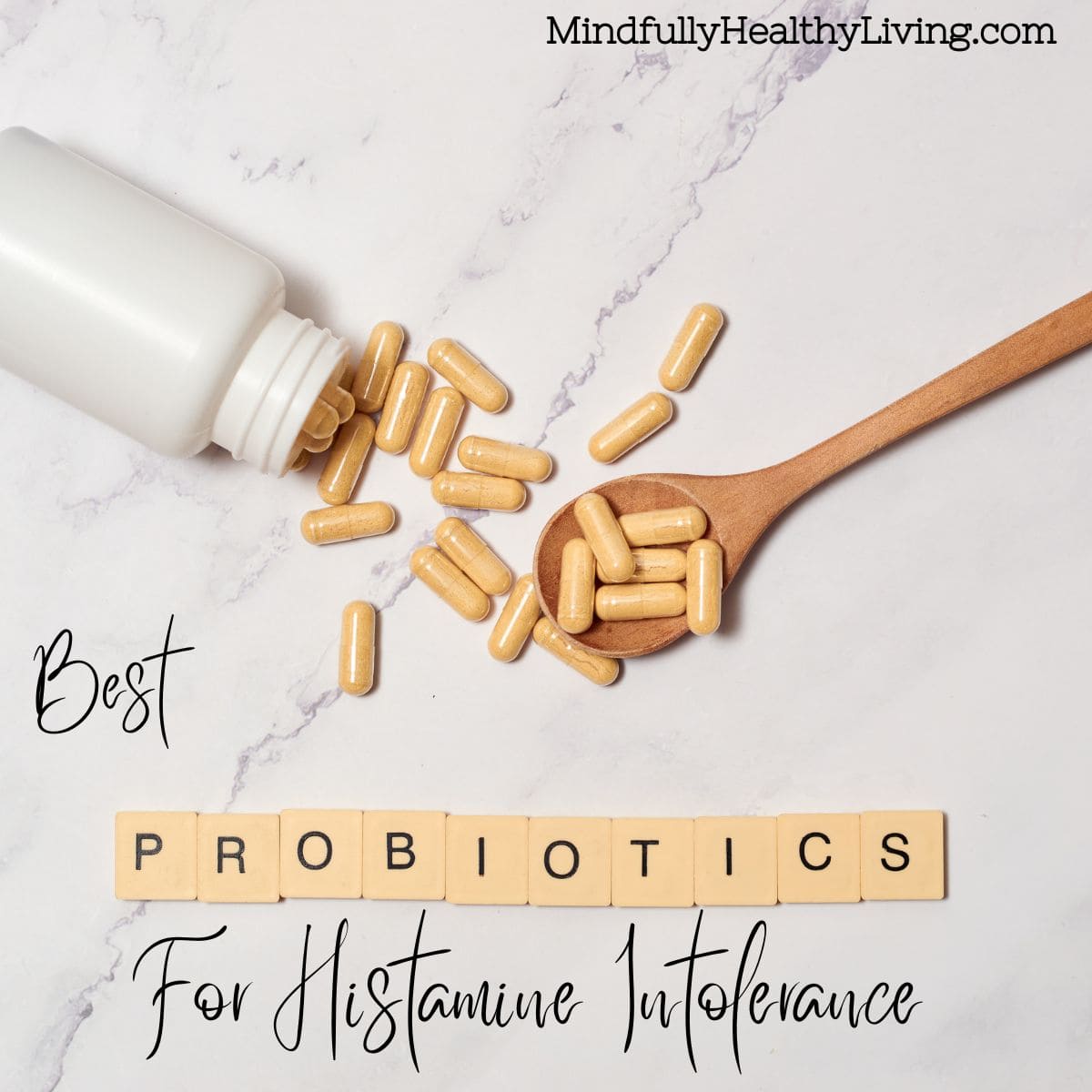
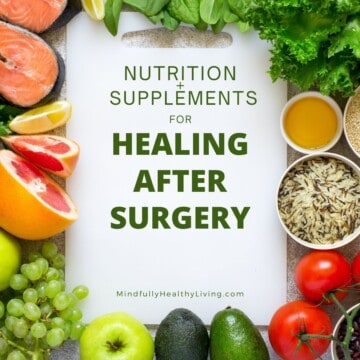
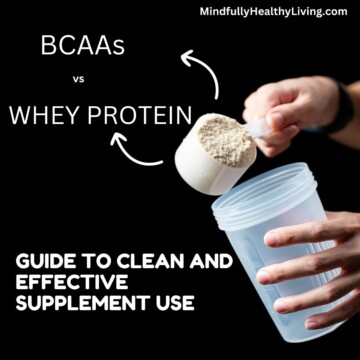
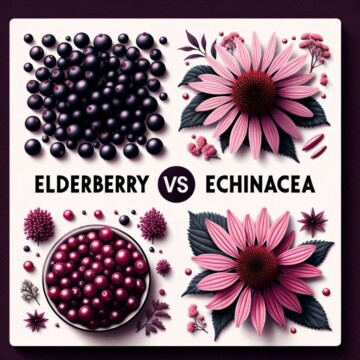
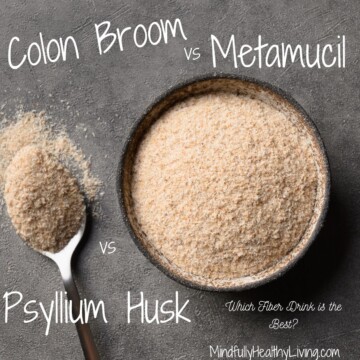
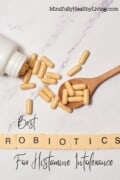
Alison says
This post is great. I've been trying to research more about histamine issues and it often seems very daunting. I love that I was able to grab my probiotic and look for each specific strain needed.
Natalie Perry says
I have definitely been there, too! Let me know if you have any questions!